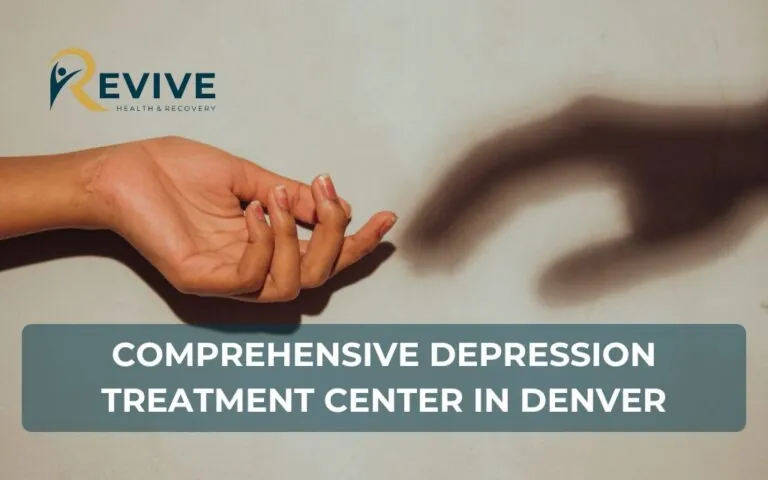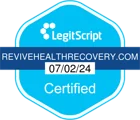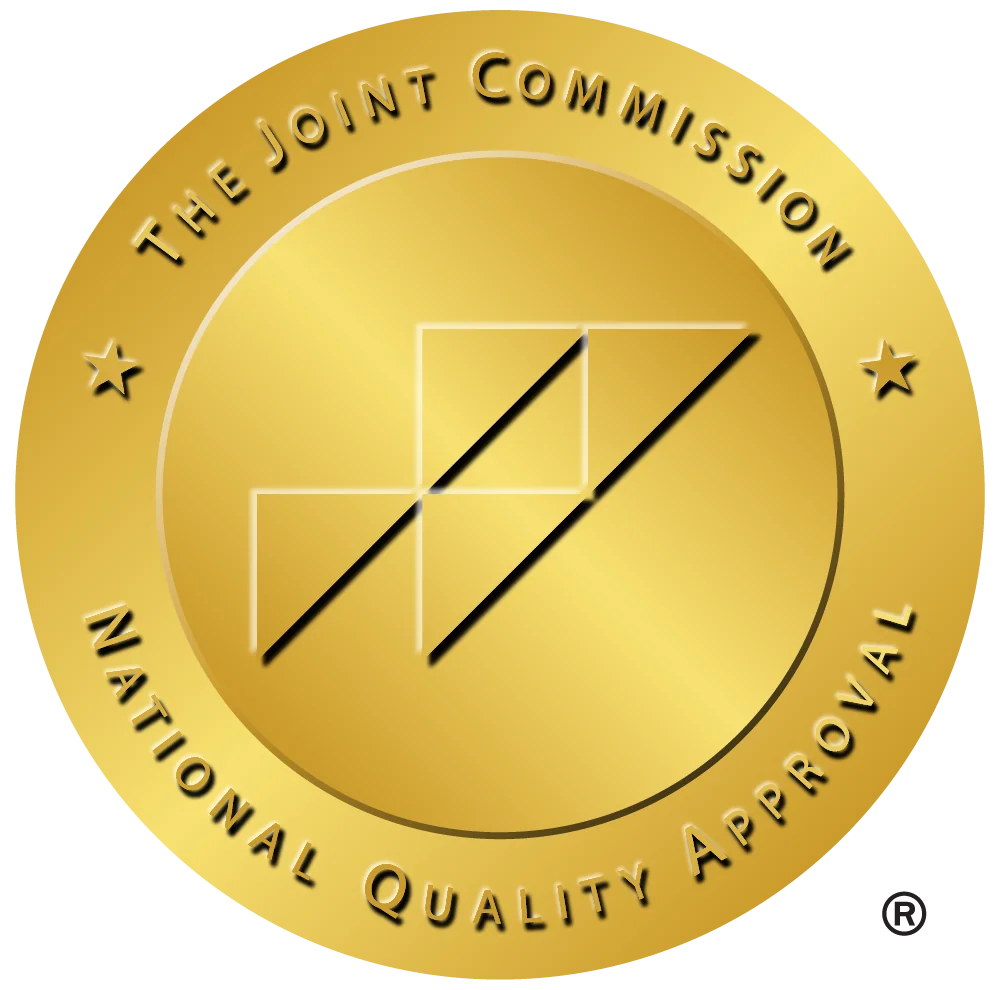In 2019, nearly 1 in 8 people worldwide—about 970 million individuals—experienced mental illness, with anxiety and depression being the most common. The COVID-19 pandemic further intensified this crisis, leading to a 26% increase in anxiety and a 28% rise in depression within a year.
Despite effective prevention and treatment strategies, many still struggle to access the care they need. Stigma and discrimination can deter individuals from seeking help, leaving them feeling isolated. At Revive Health Recovery, our mental health treatment centers are dedicated to breaking down these barriers and providing compassionate support to those in need.
What is mental illness?
Mental illness is a health issue that can significantly affect your thoughts, feelings, or actions, changing the way you see the world around you. It often causes distress and affects your ability to cope at work, establish relationships, and manage everyday tasks.
The duration of mental illness can vary greatly. Some mild conditions can last only a few weeks, while severe mental illness can last a lifetime, causing severe disability.

7 common types of mental illness
There are over 200 different types of mental illness. Some of the most common include:
- Anxiety disorders
- Bipolar affective disorder
- Depression
- Dissociation and dissociative disorders
- Eating disorders
- Obsessive-compulsive disorder (OCD)
- Post-traumatic stress disorder (PTSD)
Anxiety disorders
Anxiety disorder is a type of mental illness characterized by intense and extreme fear or dread of certain situations. People with anxiety disorders may experience physical symptoms such as palpitations and sweating. While occasional anxiety can be beneficial (like an interview, taking a test,..), anxiety disorders go beyond normal or mild phobias.
Anxiety disorder occurs when:
- Anxiety hinders your efforts.
- You often overreact to emotional stimuli.
- You struggle to control how you react to situations.

Bipolar affective disorder
Bipolar disorder is a severe mental illness characterized by extreme mood swings, ranging from extreme highs (mania) to extreme lows (depressive). Individuals with this disorder experience changes in energy levels, thoughts, behaviors, and sleep patterns. These psychological issues can make it difficult to perform daily tasks, get to work or school, and maintain relationships.

Depression
Depression is a persistent feeling of sadness and loss of interest in once-enjoyed activities. It interferes with attention, memory, eating, and sleep. Sometimes it’s okay to feel sad, but depression is more than just sadness. If left untreated, depression can become severe. In extreme cases, it can lead to self-harm or suicide.

Dissociation and dissociative disorders
Dissociation is a psychological phenomenon in which a person feels disconnected from their thoughts, feelings, memories, or identity. Dissociative disorders include dissociative amnesia, depersonalization disorder, and dissociative recognition disorder.

Eating disorders
Eating disorder is a serious mental illness that affects a person’s emotional and physical health. People with eating disorders have an unhealthy relationship with food, their weight, or their appearance. Common eating disorders include anorexia, bulimia, and binge eating.

Obsessive-compulsive disorder (OCD)
Obsessive-Compulsive Disorder (OCD) is a condition in which you experience repeated unwanted thoughts and feelings (obsessions) that cause you to do the same things over and over again (compulsions) These repetitive behaviors can interfere with your daily life. OCD is a chronic illness, and symptoms can develop and progress over time.

Post-traumatic stress disorder (PTSD)
Post-traumatic stress disorder (PTSD) is a mental illness that some people develop after experiencing or witnessing a traumatic event. This practice can be life-threatening or seriously harmful to their physical, emotional, and spiritual well-being. PTSD can affect people of all ages.

What are some effective treatment options available for mental health issues?
Many individuals diagnosed with mental illness find strength and recovery by participating in individual or group therapy. There are many treatments, but there is no one-size-fits-all solution. Everyone can choose the treatment or combination of treatments that works best for them.
Here are some treatment options for mental health issues:
- Psychotherapy
- Medication
- Support group
- Complementary & alternative medicine (CAM)
- Self-help plan
How can I get help with mental illness?
If you are worried about your mental health, here are some ways to get help.
- Primary care provider: The primary care provider may make an initial mental health assessment and then, refer you to a specialist, such as a sociologist, psychologist, or psychiatrist. If you have an appointment with your primary care provider, consider talking about your mental health concerns and asking for help.
- Federal resources: Some state agencies provide resources to help recruit mental health professionals. These include the Substance Abuse and Mental Health Services Administration (SAMHSA), the Centers for Medicare and Medicaid Services (CMS), and the U.S. Department of Veterans Affairs (VA).
- State and local agencies: Your state or county government website may provide information on health services in your area.
- Insurance companies: If you have health insurance, your insurance company representative can tell you which local providers are based on your plan. Many health insurance companies also have an app or online database to help you find participants in your area.
- Universities and colleges: If you are a student, you may be able to access mental health services and support through your school health center or peer support group. Check your school’s website for mental health resources.
Which symptom indicates that someone may need mental health treatment?
Signs and symptoms of mental illness can vary based on the disorder, circumstances, and other factors. These symptoms can impact emotions, thoughts, and behaviors.
Seek professional help if you find yourself having several of these symptoms in at least 2 weeks, such as:
- Difficulty sleeping
- Changes in appetite or unexpected weight changes
- Trouble getting out of bed in the morning because of mood change
- Difficulty concentrating
- Loss of interest in activities you usually enjoy
- Inability to complete daily tasks
- Feelings of irritability, frustration, or restlessness
Sometimes, symptoms of a mental health disorder manifest as physical issues, like stomach pain, back pain, headaches, or other unexplained aches and pains.

Where can I get help with mental illness?
Very often, seeking help can be the first important step towards recovery and moving forward with your life for good; however it may not always prove easy to know how. It is completely natural to be insecure and question yourself: Can I handle this on my own?
It’s always okay to ask for help, even if you’re unsure whether you’re experiencing a specific mental health issue.
There are multiple ways in which you can get support and perhaps some will be best for your specific scenario; it all depends on what works or is convenient for others. There is no wrong or right—everyone benefits at different times from the varied approaches to things.
- Doctor (GP): Many of us start with our local GP when we’re unwell. Your doctor can help with your mental health as well as your physical health.
- Trained therapist: Therapists and counselors offer a variety of therapies tailored to your specific conditions.
- Friends, family, carers, and neighbors: Talking to someone you trust about your feelings can be very helpful. They can provide information, encouragement, and support.
- Peer support: Peer support groups are people with similar experiences. Your peers can listen to how you’re feeling, offer empathy and understanding, and share self-care tips and support options.
- Student services: Higher education institutions typically have a student wellbeing center where enrolled students can seek support.
- Community support services: For severe or long-lasting mental health issues, your doctor can connect you with specialist mental health services.

At Revive Health and Recovery, we prioritize your mental health and well-being above all else. Our dedicated team is committed to providing compassionate, respectful, and understanding support as you navigate the challenges of mental illness. We focus on strengthening you spiritually, physically, mentally, and emotionally to help restore your life and promote healing.
Read more:
- Do not ignore when you need mental health help!
- Do not forget mental health care!
- What Are Mental Health Disorders? Understanding these 6 most common disorders worldwide today
- Removing top 5 barriers to mental health treatment – where to start?







